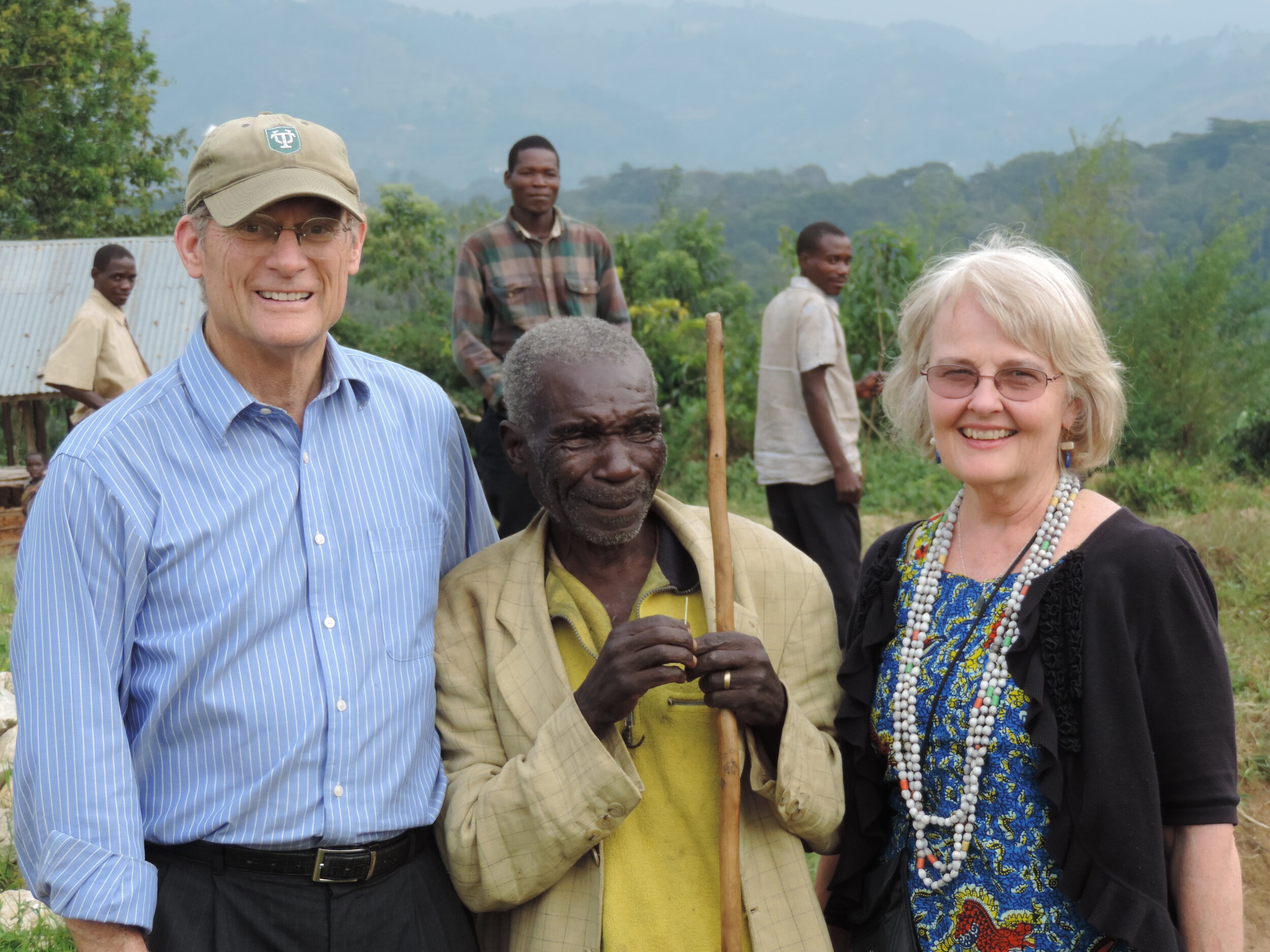Meet Our Founders
Dr. Scott and Carol Kellermann
Dr. Scott Kellermann, a California-based physician specializing in tropical medicine, and Carol, an educator, founded the Kellermann Foundation in 2004. Dr. Kellermann is the recipient of several awards, including Unsung Heroes of Compassion award by the Dalai Lama and the American Medical Association’s Dr. Nathan Davis International Award in Medicine. Both Dr. and Mrs. Kellermann received the Nashotah House Theological Seminary’s Michael Ramsey Award in recognition of their distinguished ministry in Uganda.
A message from Dr. Kellermann
After spending more than two years performing medical work in Nepal, my wife Carol and our two children settled into a northern California community to raise our family. We had enjoyed our experience in Nepal so much that we agreed that most summers, as a family, we would assist in some part of the world in a resource poor setting. The only proviso was not Africa. My sub-specialty is tropical medicine, and as sub-Saharan Africa is the source of the main burden of tropical diseases, Carol was adamant about not exposing herself or our children to these illnesses.
When we received a request to perform a medical survey on the Batwa, Carol laid her trepidations aside and agreed to go to Uganda. My studies determined that the Batwa had huge health challenges, with an under age five mortality of over 30% and a life expectancy of only 28 years. Carol engaged the Batwa on a deeper level, listening to their stories of living in abject poverty. At dinner one night, Carol mentioned, “I feel as if I have come home.” After another few weeks it was obvious that she was impacted by the Batwa’s desperation and mentioned, “The Batwa are unlikely to survive without support.” Over a quiet family dinner, Carol shocked me when she suggested, “We should consider selling our possessions and returning to assist these unfortunate people.” Carol had feared life in sub-Saharan Africa and now was willing to put it all on the line for the Batwa!
We did sell our possessions and decided that our efforts should be attempted only with a view towards sustainability. To that end, all projects would be in close collaboration with the Batwa, and we would work with organizations on the ground, including NGOs, the church and the Ugandan government. As a physician with a master of public health, I was aware that medical clinics and hospitals do not affect healthcare—much better to prevent disease than treat it. Our focus would be on preventive health. As the Batwa are ultra-poor, most surviving on less than 80 cents per day per family, land and food insecurity was prevalent and adequate water and sanitation were not available. Carol, as an educator, recognized that an important path to their survival would be through education. Our work would be broad based, addressing the root causes of poverty.
The Batwa have an expression, “Agari hamwe nigo agata eigufa”, “it takes all the teeth to break the bone” or its true meaning—united we stand. Carol and I recognized that, while projects were essential, even more important was getting to know the Batwa. We spent much of our time the first few years living in a tent adjacent to the Batwa learning their language, culture and traditions. The Batwa taught us the inestimable value of relationships and that it is through tight relationships and collaboration that joy can be found in difficult times. As we reflect on our almost two decades of involvement with the Batwa, we appreciate that we have received far more than we have given and know that our time at the Bwindi has been the best years of our lives.
Sincerely,
Scott Kellermann, M.D.
In Loving Memory of Diane Stanton
Diane was the first American to respond when the Batwa were evicted from the forest.
Diane had a passion for working in East Africa and especially for the people residing in the region around the Bwindi Impenetrable Forest. As a young university student, she traveled around the world on a five-month voyage with the “University of Seven Seas”, sponsored then by Chapman University and the Rotary Club. She fell in love with East Africa and was determined to return after obtaining degrees in Anthropology. After meeting and marrying her college sweetheart pursuing his vocation in the ministry, she worked in the fields of university administration, travel, museum archival work, and real estate.
In 1994, she was asked by the late Archbishop of Uganda, the Most Reverend Livingstone Nkoyoyo, to provide the initial help to the Batwa pygmies who had recently been evicted from the forest. Diane connected with the local bishop in Kanungu, Uganda, and together they arrived at a five-year plan to help the Batwa transition to a life outside the forest. Diane raised funds to buy land, build schools, and construct a medical clinic.
Diane reached out to the then Episcopal Medical Missions Foundation for a volunteer physician to undertake a medical survey of the Batwa. Dr. Scott and Carol Kellermann answered the call. In the years that followed, Diane served on the foundation’s advisory board. She served as the Kellermann Foundation Executive Director from 2016 to 2021.
Diane was the recipient of the Woman Who Gives Hope Award from Chiapas International, and the Nashotah House Theological Seminary’s Michael Ramsey Award in recognition of her distinguished ministry providing hope and health in Uganda, the highest award offered by Nashotah House.
Diane departed this life on June 27, 2021 after battling lung cancer. She is greatly missed, but her mission of providing hope and health in Uganda continues.


